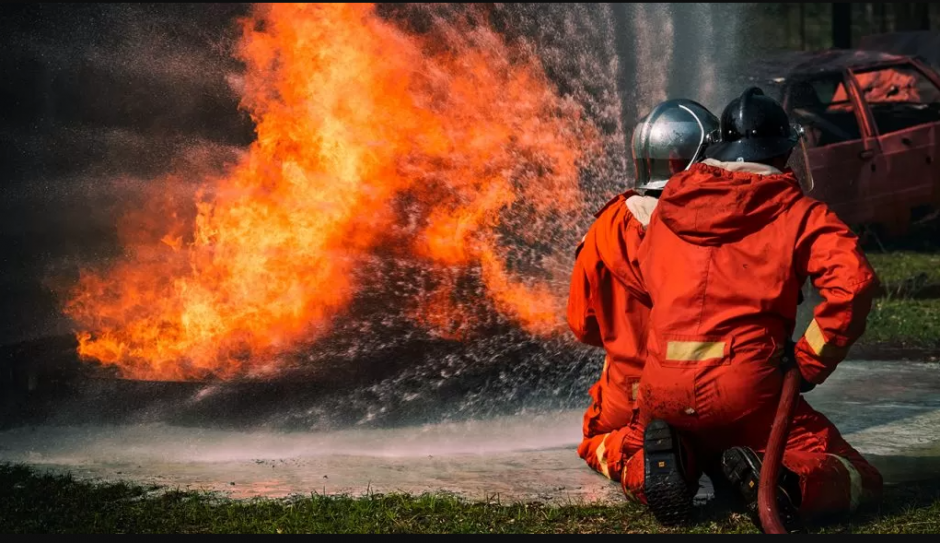Guardians of Safety: The Vital Role of Hospital Fire Watch Services
Hospitals are places of healing, care, and refuge, where patients seek solace and treatment for various medical conditions. Amidst the hustle and bustle of medical activities, ensuring the safety and well-being of patients, staff, and visitors is paramount. One critical aspect of maintaining safety in hospitals, often overlooked but essential, is the provision of fire watch services.
Understanding Hospital Fire Watch Services
Hospital fire watch services entail the deployment of trained personnel to monitor the premises for fire hazards, especially during instances when the regular fire protection systems are offline or undergoing maintenance. These situations could arise due to system upgrades, renovations, or other unforeseen circumstances that temporarily compromise the hospital’s fire safety infrastructure.
The primary objective of hospital fire watch services is to prevent and respond swiftly to potential fire emergencies, minimizing risks to life and property within the hospital premises. Trained fire watch personnel conduct regular patrols, inspecting various areas of the hospital to identify fire hazards, ensure compliance with safety protocols, and take immediate action if a fire-related incident occurs.
The Unique Challenges of Hospital Fire Safety
Hospitals present a unique set of challenges when it comes to fire safety. Unlike other commercial or residential buildings, hospitals accommodate a diverse range of occupants, including patients with varying degrees of mobility, medical conditions, and dependency on life-support systems. Ensuring their safety during a fire emergency requires specialized planning, training, and resources.

Moreover, hospitals house critical medical equipment, flammable materials, and hazardous substances, all of which can exacerbate the severity of a fire incident if not properly managed. Additionally, the need for uninterrupted medical care places further pressure on hospital staff to respond swiftly and effectively to any fire-related emergencies while ensuring minimal disruption to patient care.
The Role of Hospital Fire Watch Services
Hospital fire watch services serve as a crucial component of the hospital’s overall fire safety strategy, providing an added layer of protection in situations where the primary fire protection systems are unavailable. These services are not only essential for maintaining compliance with fire safety regulations but also for safeguarding the lives of patients, staff, and visitors within the hospital premises.
Trained fire watch personnel are equipped with the knowledge, skills, and resources necessary to identify potential fire hazards, respond promptly to fire-related incidents, and coordinate with emergency responders when needed. Their presence instills confidence among hospital stakeholders that proactive measures are in place to mitigate fire risks and ensure the safety of all occupants.
Compliance and Regulations
Hospital fire safety is governed by stringent regulations and standards established by regulatory authorities and healthcare governing bodies. Compliance with these regulations is mandatory to ensure the safety of patients, staff, and visitors within hospital premises. Failure to adhere to these regulations can result in severe penalties, legal liabilities, and, most importantly, jeopardize lives.
Hospital fire watch services play a vital role in maintaining compliance with fire safety regulations, particularly during periods when the hospital’s primary fire protection systems are offline. By conducting regular patrols, monitoring fire hazards, and implementing appropriate safety measures, fire watch personnel help hospitals meet regulatory requirements while mitigating potential risks.
Training and Expertise
Effective hospital fire watch services require more than just vigilant observation; they demand specialized training, expertise, and dedication to safety. Fire watch personnel undergo rigorous training programs to familiarize themselves with hospital fire safety protocols, emergency procedures, and hazard identification techniques.
Additionally, fire watch personnel collaborate closely with hospital staff, fire safety professionals, and emergency responders to develop comprehensive fire safety plans tailored to the specific needs of each hospital. This collaborative approach ensures that hospital fire watch services are integrated seamlessly into the hospital’s overall fire safety strategy, maximizing their effectiveness in safeguarding lives and property.
Conclusion
In the dynamic and demanding environment of hospitals, where the focus is on healing and caring for patients, the importance of fire safety cannot be overstated. Hospital fire watch services serve as the guardians of safety, providing essential protection during periods when the primary fire protection systems are offline or undergoing maintenance.
Through their expertise, training, and dedication to safety, fire watch personnel play a vital role in ensuring the safety and well-being of patients, staff, and visitors within hospital premises. As hospitals continue to evolve and face new challenges, the role of fire watch services will remain indispensable, reaffirming their status as critical guardians of safety in the healthcare sector.